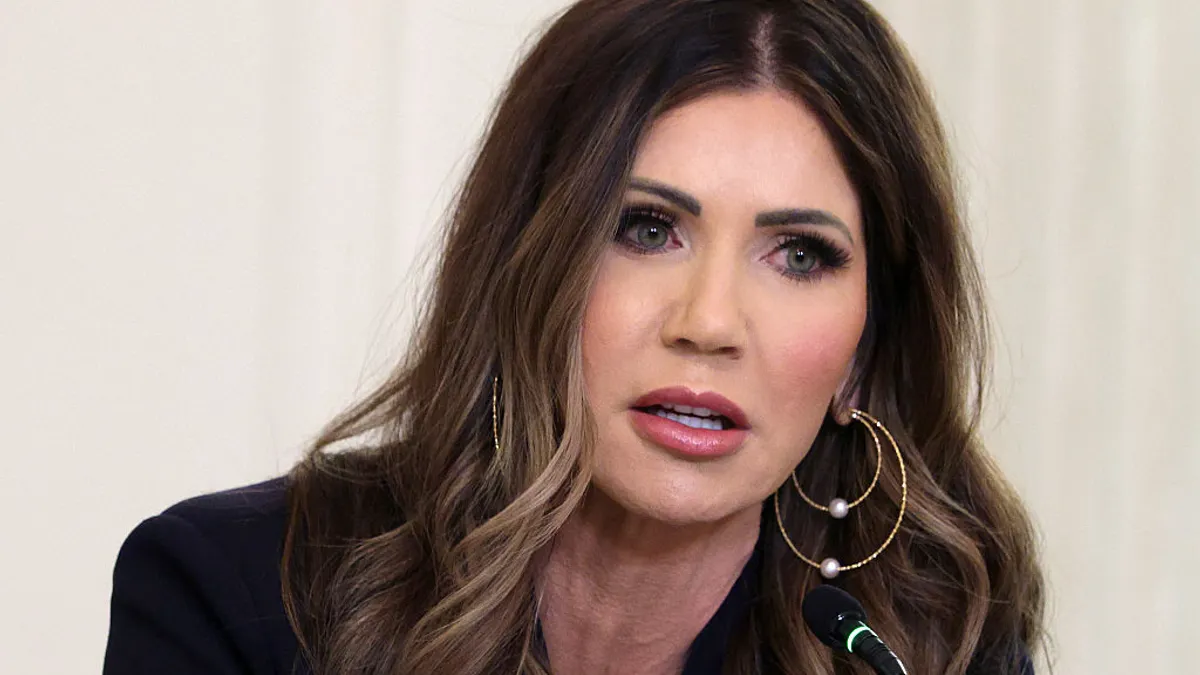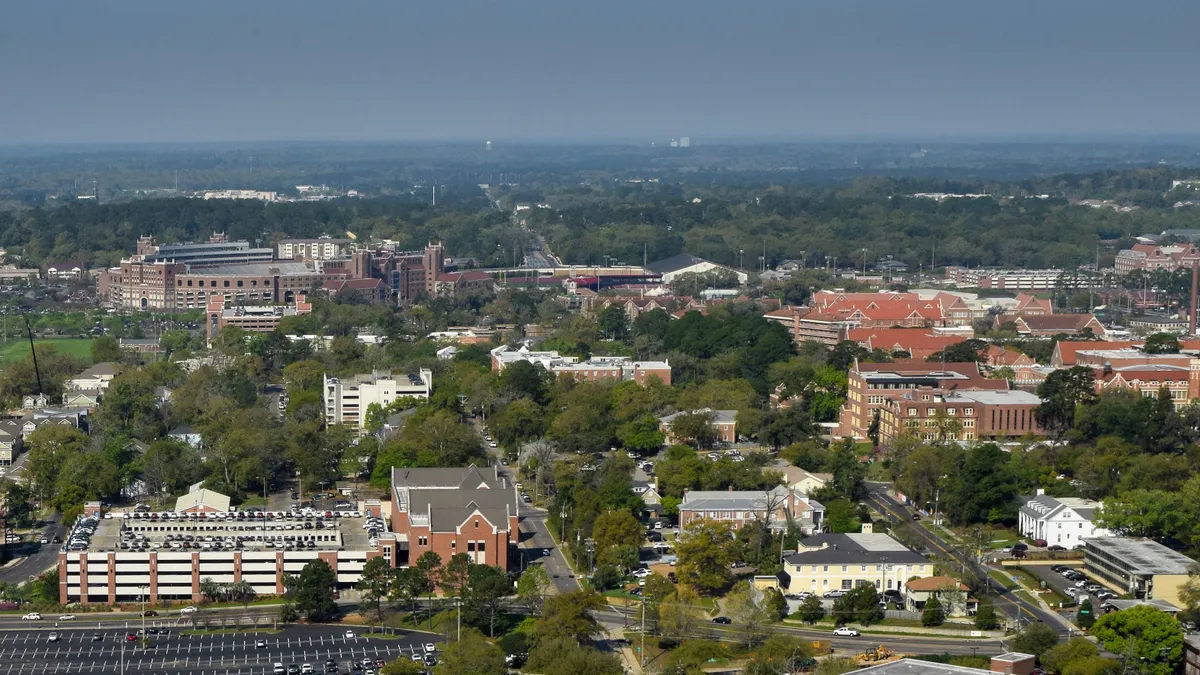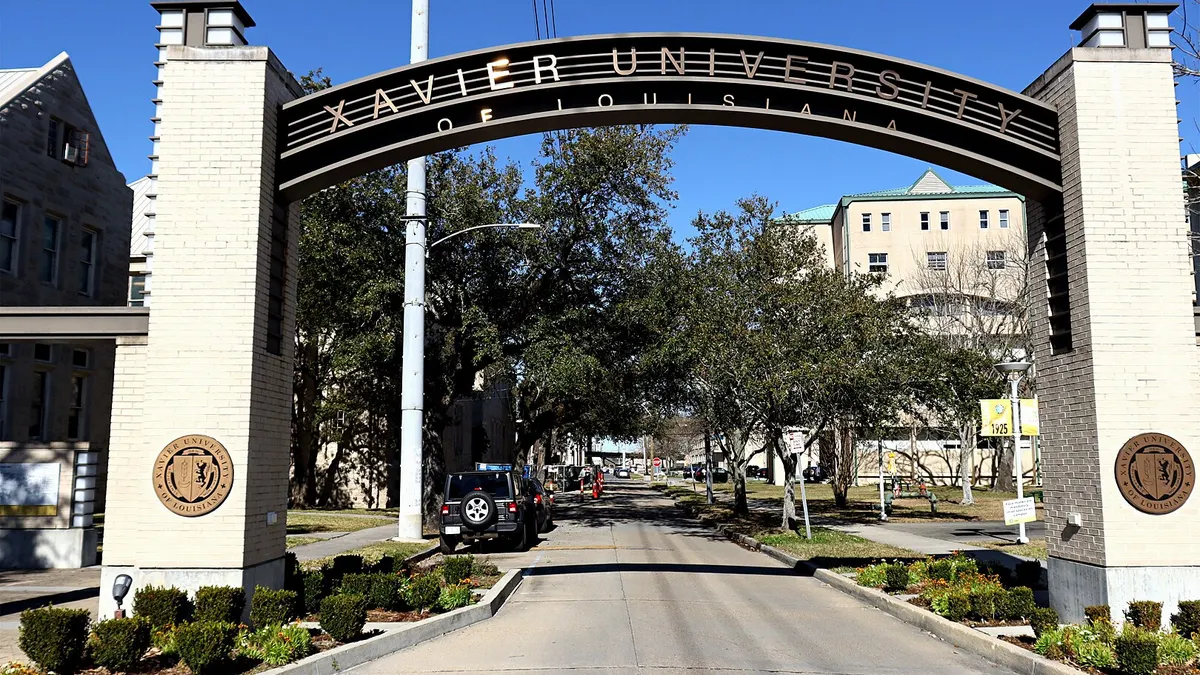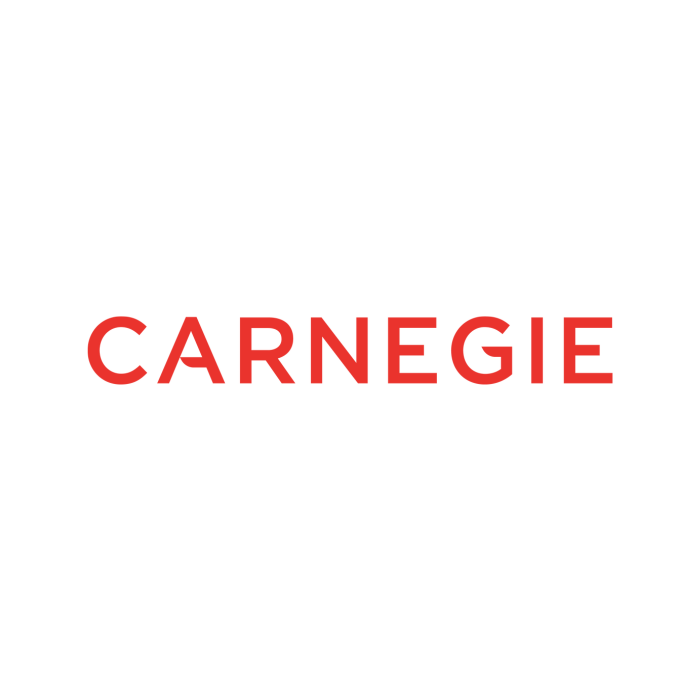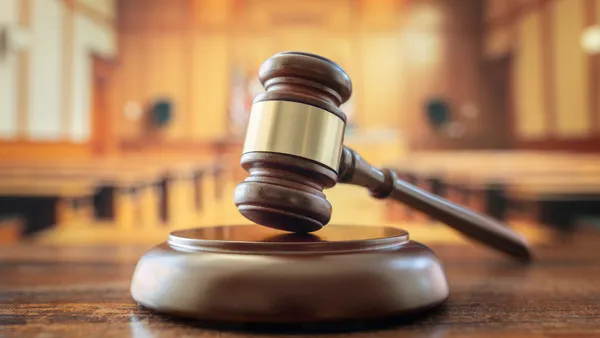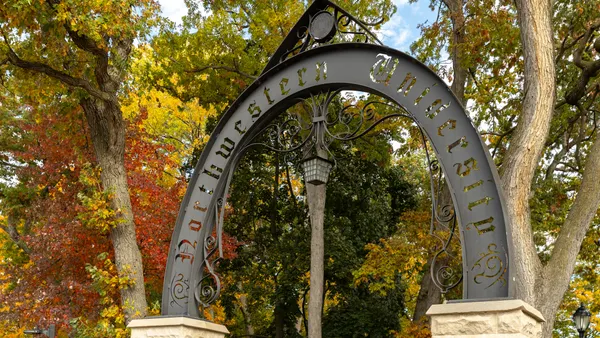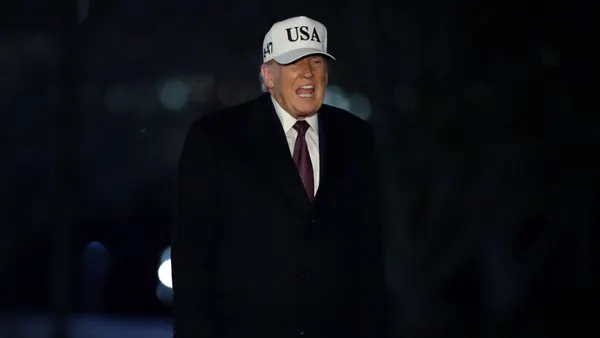Dive Brief:
- Nearly three dozen higher education organizations are urging U.S. Homeland Security Secretary Kristi Noem to exempt colleges from the new $100,000 fee for H-1B visa petitions, arguing in an Oct. 23 letter that these employees do work “crucial to the U.S. economy.”
- President Donald Trump caught the higher education sector by surprise when he announced the large fee last month. Large research universities heavily rely on the H-1B visa program to hire international scholars.
- Ted Mitchell, president of the American Council on Education, said in the Thursday letter that colleges’ H-1B workers educate domestic students for “high-demand occupations, conduct essential research, provide critical patient care, and support the core infrastructure of our universities.”
Dive Insight:
Trump shocked the higher ed world sector on Sept. 19 when he declared that new petitions for H-1B visas must come with a $100,000 payment to be processed. Yet colleges were left unsure which of their workers would be impacted amid scant details on the new policy and mixed messages from administration officials. The federal government is facing at least two lawsuits over the fee.
In the days and weeks since the fee was announced, the Trump administration has released additional information about the new policy. Just last week, U.S. Citizenship and Immigration Services released guidance that said the new fee wouldn’t apply to visa holders inside the country who are requesting a change of status or extension of stay — potentially exempting international students who recently graduated and have H1-B sponsorship.
Mitchell’s letter asked Noem to confirm that the new USCIS guidance includes those on F-1 or J-1 visas — both of which cover international students — converting to H-1B status. He also asked if the government would return the $100,000 fee if a petition is denied and how USCIS would process H-1B applications in a timely manner given the new requirements.
The letter points out that the proclamation included language that allows DHS to issue exemptions for workers if government officials deem hiring them is in the nation’s interest and doesn’t pose a security risk.
“The continuing education of our postsecondary students is in the national interest of the United States,” Mitchell wrote.
He cited recent CUPA-HR data showing that 7 in 10 faculty on H-1B visas in the U.S. are in tenured or tenure-track positions, with the largest shares in business, engineering and health disciplines.
Mitchell contended that exempting colleges from the new fee would be similar to the higher education sector’s current exemption from the cap on H-1B visas, which are awarded via a lottery process. The cap limits annual H-1B visa awards to 65,000 workers, with an additional 20,000 for international students who finished U.S. graduate programs.
Congress exempted higher education from the cap in recognition “of the special role that institutions of higher education play in hiring H-1Bs on our campuses,” Mitchell wrote.
ACE also took issue with a recent proposal that would change how the lottery system works. Under the new proposal from USCIS, visas for higher-wage applicants would be given more priority.
Mitchell urged USCIS to withdraw the rule in a public comment submitted Friday on behalf of ACE and 19 other higher education groups. He argued the change would harm international enrollment, as foreign students entering the workforce after completing their degrees at U.S. institutions would have much lower access to the H-1B visa program.
“A central reason for the excellence of our postsecondary institutions is their ability to attract and enroll talented, motivated, and curious students, whether born in this country or abroad,” Mitchell wrote. “This proposed rule will limit the ability of our institutions to recruit and retain these students, especially those that wish to remain in the United States.”


